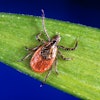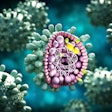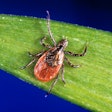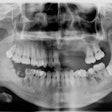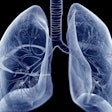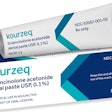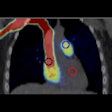
Aggregatibacter actinomycetemcomitans (A. actinomycetemcomitans), a bacteria linked to gum disease, may worsen rheumatoid arthritis (RA), according to a study published in the International Journal of Oral Science.
Certain treatments have reduced arthritis symptoms by blocking a person's immune response, suggesting that stopping this pathway may help control RA triggered by bacterial infections, the authors wrote.
"This work highlights how RA can be progressed by inflammasome activation as a result of periodontitis-associated bacterial infection and discusses the mechanism of inflammasome activation in response to infection with A. actinomycetemcomitans," wrote the authors, led by Tokuju Okano of the Tokyo Medical and Dental University in Japan (Int J Oral Sci, August 15, 2024, Vol. 16, 54).
Infection with A. actinomycetemcomitans in the abdomen worsened RA in animal models by increasing cell activity in the joints and reducing bone density. This reaction occurred because the bacteria trigger immune cells to release IL-1β by activating the caspase-11 protein. In a modified mouse model without caspase-11, RA and IL-1β production didn't occur, highlighting caspase-11's critical role in worsening arthritis during infection, they wrote.
Since the bacteria weren't found in the bloodstream or spleen after oral infection, it's likely that the mouse's oral environment prevents bacterial spread. To more accurately model human disease, researchers used direct abdominal infection in the study. They found that blocking immune pathways, like caspase-11, reduced arthritis symptoms.
Three inhibitors -- polymyxin B, chloroquine, and an antiCD11b antibody -- halted arthritis progression in mice by reducing immune cell activity and IL-1β release in the joints. It is indicated that inflammasome activation in immune cells like macrophages play a key role in worsening arthritis after infection with A. actinomycetemcomitans, they wrote.
Usually, caspase-11 activation by bacterial LPS requires a specific transfer process, but LPS from A. actinomycetemcomitans can activate inflammasomes directly. These findings could lead to better treatments for RA triggered by infections or for RA that tests negative for anticitrullinated protein antibodies (ACPAs).
However, since caspase-11 is specific to mice, further research is needed to understand the roles of caspase-4 and -5 in humans, the authors added.
"These findings may pave the way for advances in clinical treatments for RA induced by infection with A. actinomycetemcomitans or ACPAs-negative RA," Okano and coauthors concluded.



